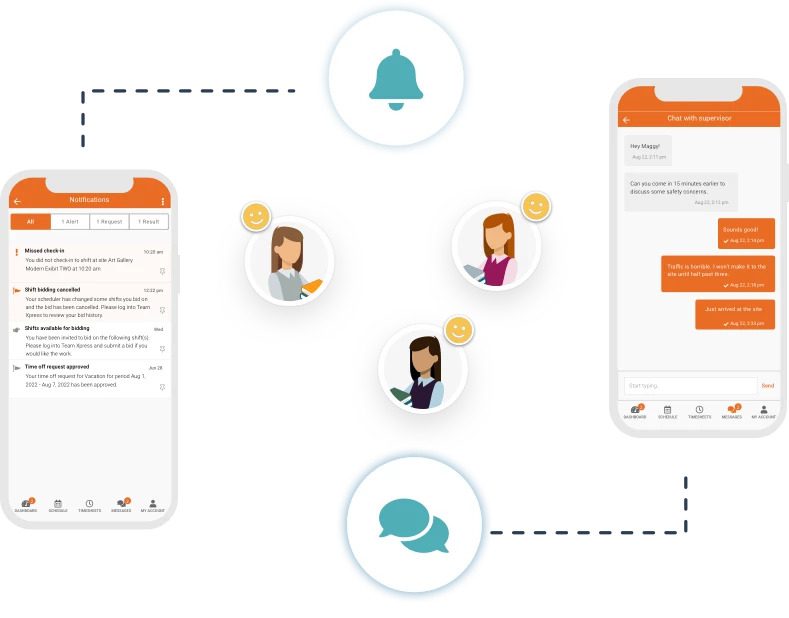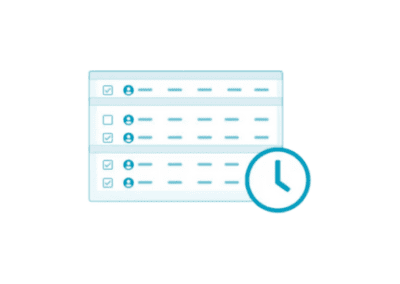Would you believe that the events and venues industry is expected to reach $1,552.9billion by 2028? With that in mind, venue management is a job that won’t be disappearing any time soon. The landscape has changed quite alot, and faced a number of challenges over the last 4 years!
Now, where there used to be clip boards and to-do lists, there are iPads and automation, which can certainly make life easier. As technology advances and venue management expands, the necessary skills for success are constantly evolving.
However, working in venue and events management is not all glitz and glamour! It takes a person with specific skills to excel within the industry. In this blog post, we are going to discuss the essential skills required. Read on to find out more!
What is venue management?
Venue management includes activities or duties related to the operations of buildings. These can be theatres, concert halls, hotels, conference centers, and sports arenas. Often time a venue manager may be responsible for managing multiple venues across different geographical locations.
You may also be responsible for:
- Venue bookings
- Choosing suppliers
- Project management
- Employee scheduling
- Property maintenance
- Supervision of employees
- Event planning
- Customer relationships
- And many more!
Essential skills needed for venue management
Venue and event professionals have so many things to juggle. There are countless ways to measure their success; repeat business rates, customer satisfaction, booking rates and so many more. All of these measures come back to the skills that venue managers possess and how they utilise them.
Let’s take a look at the skills that venue and event planners should possess and continuously improve!
Interpersonal Skills
This is probably one of the most important skills required for venue management. Interpersonal skills are the skills that people use to interact with others effectively. It means that a person can work well with others and build good working relationships.
Working in venue management means interacting with many different people in different functions. You’ll be managing team members, potential clients, regular customers and the general public. You will need to be able to adapt your behavior depending on who you are working with. You will also need the ability to work with others to problem solve, negotiate and make deals.
The people who you work with are what make a workplace. If you can create and nurture strong working relationships in business, not only will it make work fun but it also makes your job easier!
Flexibility and Adaptability
Working in venue management means you must be able to adapt to different situations and be flexible. You never know what is coming around the corner and your job may require you to do many different things. One minute you are presenting to a room full of people, the next you are serving people their dinner. The job requires you to wear many different hats and so you shouldn’t have a problem with doing so.
This also means allowing your employees to be flexible too. Working in the venue industry, you can be working at any time of the day so it’s important that employees have control over their schedule. Flexible scheduling is extremely beneficial to employers such as avoiding burnout in the workplace which increases overall productivity.
Communication
Similar to interpersonal skills, how you communicate is a huge part of venue management. You need to manage your in-house teams as well as keep clients in the loop in order to run successful events at your facilities. Workforce management software is invaluable in building communication between supervisors/managers and employees.
With workforce management software, such as Celayix, you can communicate instantly with teams about shift changes. In large scale venues, things can change day to day so your venue management process needs to keep up with that. You can set employees certain shift tasks that they have to sign off on by the end of their shift which keeps everyone aligned on the job at hand. It makes managing teams across multiple locations easy!
Organization
Venue management is the equivalent of juggling 100 things at one time. Organizing effectively and multi-tasking are quintessential parts of the job. Using a documented process and plan keeps you and your team informed and in the know when it come to managing events.
Venues rely solely on organization for success. It also ensures that everyone aligns on timelines, budgets, and meetings. A well-organized event doesn’t just happen by accident as we know. It requires serious organizational skills from the outset.
Problem-solving
Unfortunately, unexpected problems are a common occurrence in venue management. Your vendor has supply issues last minute, your caterer is late or your audio equipment stops working. The list is endless. A key part of venue management is being able to quickly adapt to a situation and keeping your cool while doing so.
The client should never know there is something going wrong! Your problem-solving skills improve over time and with the more events you plan. A great way to avoid unexpected problems popping up is to continue to make backup plans in case things go wrong!
Leadership 
Being a team player is a crucial aspect of venue management. As we mentioned, a venue manager may be expected to do a lot of tasks that are outside their remit for the sake of the event. However, being able to assume a leadership position and delegate tasks to others is a key part of the role. A good venue manager can communicate a common goal as an inspiring vision and use it to motivate their team.
“To inspire a team, you have to make sure that everyone believes in the overall mission and vision for the company and the event. Teams have to understand how they play an integral part in making the event successful. Never underestimate the importance of telling your teams how much you appreciate them and the work they do. If leaders have an open-door policy where employees feel safe coming to them to share their ideas and concerns, then trust is built.”
Lori Pugh Marcum – Head of Meetings Innovation at MPI, Instructor of Women in Leadership: Executive Skills Certificate.
With the above skills in your back pocket, there is no doubt you will flourish in venue management. Developing your skills takes time and experience so have patience! There are lots of tools available to make your work in venue management a bit easier.
Celayix employee scheduling and workforce management is one of those tools. If you’d like to learn more about how we can help you improve your venue management skills, get in touch today!








